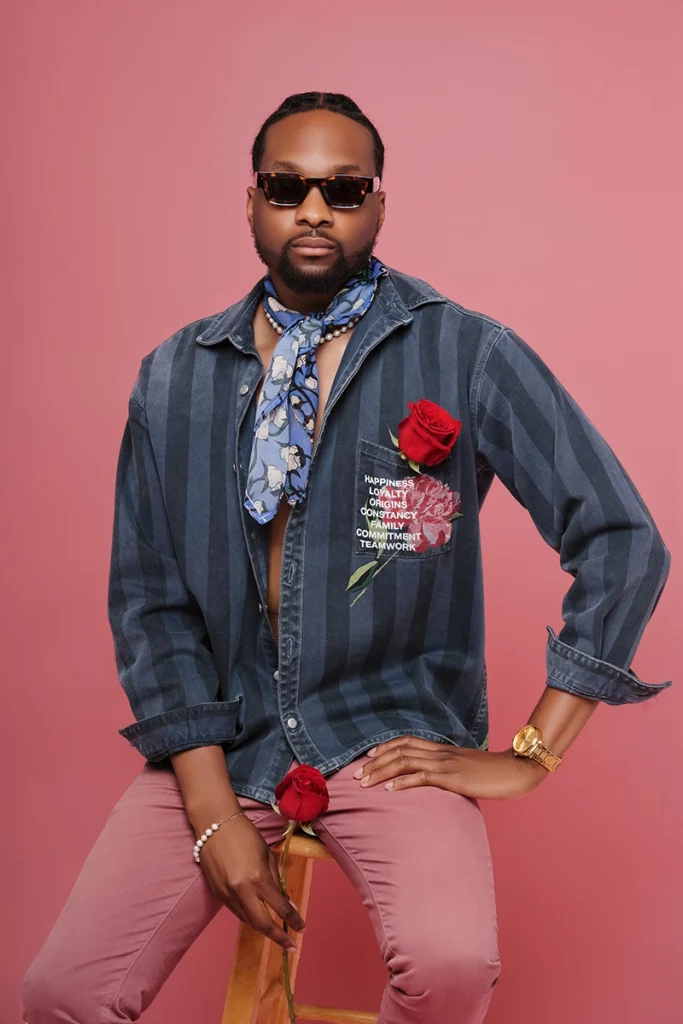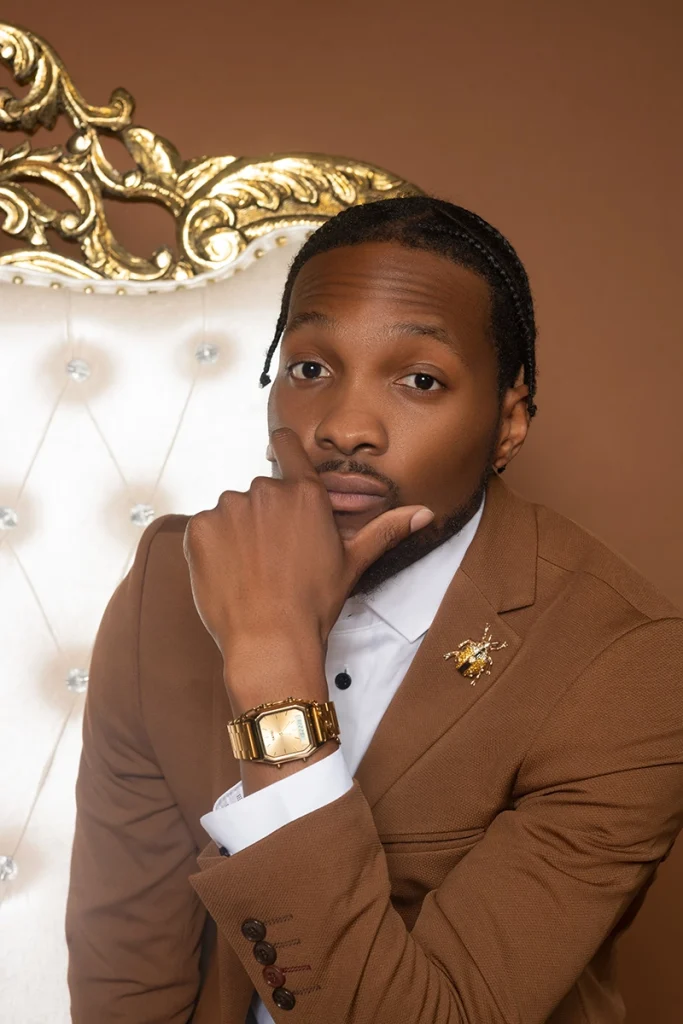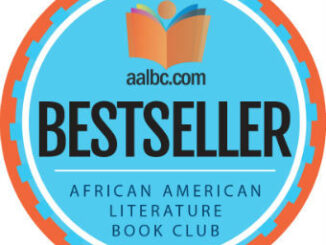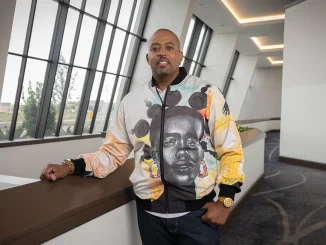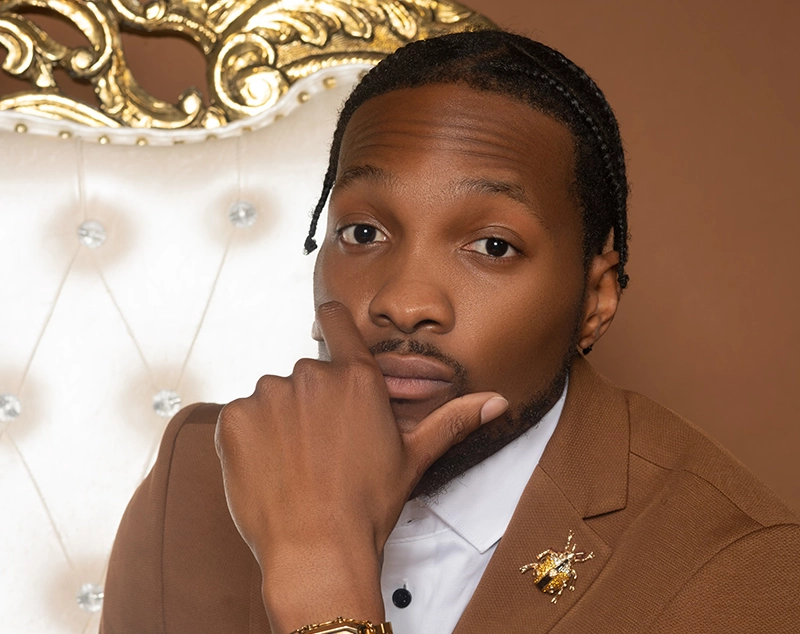
By Staff
David Fofana, Jr. is a quiet force—resilient, reflective, and rooted in purpose. After enduring unimaginable loss with the passing of his entire immediate family, David made a courageous choice not to be consumed by grief but instead transformed by it. His journey is one of survival, self-discovery, and emotional growth. Guided by faith, creative passion, and the desire to leave a legacy of love, David now stands as a testament to what it means to heal, evolve, and still dare to dream. He doesn’t wear his pain on his sleeve, but it has informed the man he’s become—a man who values emotional intelligence, self-inquiry, and legacy.
Can you share who David Fofana, Jr. is today, after all you’ve walked through and survived?
Today, I’m a kind and respectful man who refuses to let trauma define my future. I’ve learned the value of feeling my emotions without being ruled by them. Not every day is perfect, but I’ve developed the emotional intelligence to know when I need support. Some may describe me as stoic, but I simply see myself as a survivor—someone still standing, still becoming.
How did the loss of your family shape or shift your understanding of purpose and identity?
Losing my entire family forced me to question everything—my identity, my direction, even my reason for being. For a long time, I felt lost. But eventually, I turned inward and reconnected with the parts of me that brought joy as a child—creativity, fashion, and expression. Revisiting those early passions reminded me of who I was before the pain and helped me find purpose again.
You made the decision to leave college to care for your loved ones—what did that time teach you about responsibility, love, and resilience?
That decision taught me the meaning of real sacrifice. Watching my mother struggle after my parents’ divorce lit a fire in me—I couldn’t continue accepting help from someone who was giving me her last. Putting my goals aside to support her was hard, but it felt necessary. I don’t regret the choice, though I recognize I shouldn’t have had to make it. Still, it taught me how deep love runs and how powerful resilience can be.
What was the moment you realized you needed help for your mental and emotional wellbeing, and how did you find the courage to seek it?
There wasn’t a singular “aha” moment. It was more of a slow unraveling—I started noticing pieces of myself fading: my sense of humor, peace, imagination, individuality. And I wasn’t okay with that. The turning point was imagining the man I want to be for my future wife and children. I knew I couldn’t bring a fractured version of myself into that legacy. That gave me the push to fight for my wholeness.
In what ways has therapy or treatment supported your healing journey?
Outside of a few bereavement groups, I haven’t had much formal therapy. My healing has mostly come through faith, intuition, and listening closely to others’ lived experiences. It’s been a personal, spiritual path—one guided by reflection more than structure.
Why do you think it’s so hard for many Black men to talk about grief or mental health, and what would you say to those still carrying their pain in silence?
Culturally, we’re often conditioned to suppress vulnerability. As Black men, the only emotions typically deemed “acceptable” are anger and joy. I had to rewire my thinking to see vulnerability as strength, not weakness. You don’t have to tell everyone everything—but find one person you trust and start there. The weight you’ll release from just that one honest moment is beyond words.
What tools, practices, or people have been anchors for you in your healing process?
Honestly, self-talk has been one of my greatest tools. I ask myself difficult questions that no one else may think to ask—why I feel a certain way, why I reacted to something, or what triggered me. That kind of internal inventory keeps me grounded and self-aware.
After working in customer service, what inspired your interest in stepping into the world of entertainment and production?
I’ve always been fascinated by what happens behind the scenes—how a movie, a show, a live event comes together. As a kid, I loved watching the bonus features on DVDs—learning about wardrobe design, scoring, alternate endings. That curiosity never left. Over time, opportunities aligned, whether through modeling, stage managing, or creative direction, and I naturally found myself stepping deeper into the production world.
How do you think your life experience has prepared you to tell meaningful stories through the entertainment lens?
My experiences taught me to pay attention to the details. When you’re forced to make adult decisions early on, you learn to see things from multiple angles. That perspective gives me the ability to tell layered, emotionally honest stories. I’ve learned how to communicate my truth in a way that others can understand and feel.
Do you see your creative journey as a continuation of your healing, or a tribute to your family in some way?
Absolutely both. Creating gives me joy—and seeing myself genuinely happy would’ve brought joy to my family. Every idea brought to life, every project completed, feels like both a step in my healing and a tribute to those I’ve lost. They’re part of the reason I keep going.
What internal battles have you had to overcome to pursue a new dream, and how do you continue to move through them?
The biggest hurdle was taking the leap of faith. Trusting that with God, anything is possible. I’m not currently battling anything internally, but I remain conscious of how much trust and courage it takes to walk in your calling—especially after grief.
In what ways do you carry your family with you as you step into this new chapter of life?
They are with me always—in every step, every breath, every decision. I feel their presence guiding and protecting me. They live within me, and I move through life not just for myself, but with their spirit walking beside me.
What does “following your dreams” mean to you now, compared to before everything changed?
It means so much more now. I feel like I have people rooting for me from beyond—watching my journey, holding me accountable, cheering me on. My dreams now carry weight and responsibility, not just ambition.
If you could speak to the version of yourself before the losses and the pain, what would you want him to know or hold onto?
I’d tell him he’s about to face a storm he couldn’t have imagined. He’ll come out stronger, but he’ll be changed forever. And that’s okay. Change doesn’t mean losing yourself—it means evolving. I’d remind him to embrace life more, hold tight to who he is, and never forget he’s a natural leader.
What gives you hope now?
Seeing others navigate hardship and still show up with love, integrity, and grace gives me hope. Knowing someone, somewhere, wishes they had what I have reminds me to stay grateful. And the thought of my future children—our bond, our conversations, the lessons I’ll pass down—that fills me with hope and purpose.
What would you say to another Black man facing loss, depression, or uncertainty—someone who feels stuck in the in-between?
I’d tell him that this road is hard. It requires courage, support, and a willingness to heal. You don’t need a massive village—just a few people who truly care and push you to grow. Keep hope in front of you. That alone can help you survive the darkest seasons.
What keeps you going on the days that feel the heaviest?
A good cry. Letting the emotions flow helps me release the weight. I’ve learned not to lie to myself about how I feel—my emotions are real and valid. I just don’t allow myself to stay in that space too long. A day or two is okay, but I won’t live in hopelessness. I’ve been there before, and I know I don’t want to return.
As you look toward the future, how do you define success—not just in career, but in life, love, and legacy?
Success for me is a peaceful, purpose-filled life. A loving wife, beautiful children, financial freedom, and good health. Being the head of a kind and nurturing household. If I can be a role model for the next generation, someone they can look up to and say, “That’s a good man,” I’ll know I’ve done my part.



